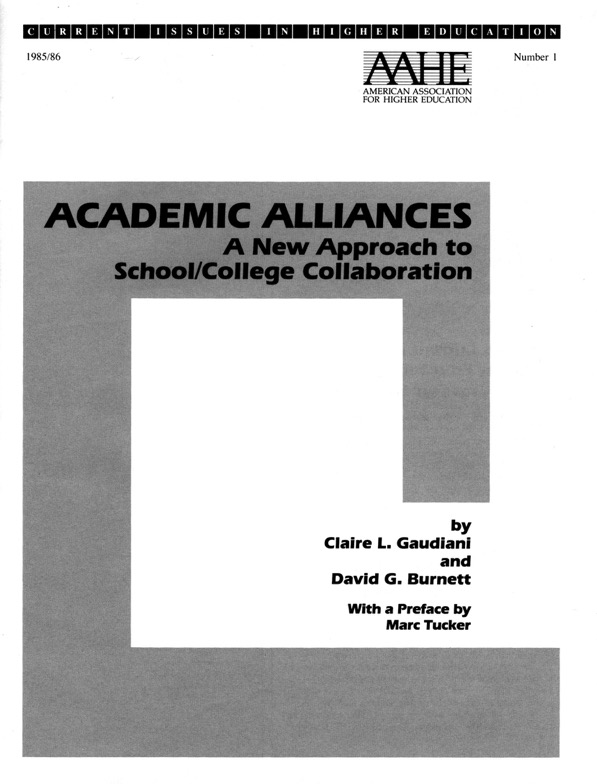By Claire L. Gaudiani (NHC Fellow, 1980–81) and David G. Burnett

Washington, D.C.: American Association of Higher Education, 1986
From the publisher’s description:
Academic alliances between secondary school teachers and postsecondary faculty are discussed. Teachers and faculty who teach the same subject in the same geographical area voluntarily meet regularly to examine the quality of teaching and learning in their discipline at the local level. School and college faculty together develop some common ground between the demands of the specialist and the generalist and maintain an appreciation of both the teaching and research effort. Participating staff can use academic alliances to avoid getting stuck in dull career paths and to develop new leadership opportunities. In addition to identifying interested faculty, a steering committee should be developed. Meetings of the alliance group can be devoted to journal review, panel discussions, demonstration classes and curriculum exchanges, and review of major conferences. Incentives for faculty participation can include released time, inservice/graduate credit, pay, and credit toward tenure and promotion. Education and continuing education departments can assist postsecondary educators in starting and sustaining collaboration. Descriptions of alliances are provided for foreign languages and literature, history, international studies, geography, English, and science and math. Information on five funding sources is included.
Subjects
Education Studies / Education Theory / Higher Education / Public Schools / Teaching /Gaudiani, Claire L. (NHC Fellow, 1980–81). Academic Alliances: A New Approach to School/College Collaboration. By Claire L. Gaudiani and David G. Burnett. Current Issues in Higher Education. Washington, D.C.: American Association of Higher Education, 1986.